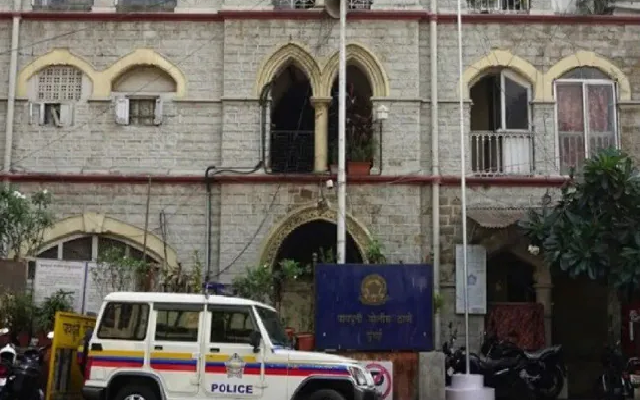 The Draft EIA Notification 2020 published by the Ministry of Environment, Forest and Climate change is set to replace the EIA Notification, 2006 once it is passed.
The Draft EIA Notification 2020 published by the Ministry of Environment, Forest and Climate change is set to replace the EIA Notification, 2006 once it is passed.
The environment which has been subjected to extreme stress over the past several decades has now reached a point where very precise and strict rules have become necessary to keep the planet safe while at the same time allowing the development of trade and industry to safeguard economic growth. India now occupies the 168th position in the world out of 180 countries in terms of EPI (Environment Protection Index) score. It is critical that to ensure a decent future for our progeny, we should improve upon this rating instead of allowing it to slide further.

The proposed modifications however now open the door to increased risk acceptance and reduced prior scrutiny for several categories of new projects and expansion of existing projects.
Some of the prominent changes are as below:
- Where members are not nominated to the State or UT EIA Authority 45 days before the expiry of the term of the incumbent members, the Centre would constitute the state or UT EIA without reference to the State Government or UT Administration. This would curtail the involvement of the state government and UT administration in effectively managing the operation of the EIA. At the same time on the positive side, it will push lackadaisical state governments to act quickly in their own interests.
- The scope of public consultation has been limited to “….local affected persons and others, who have a plausible stake in the environmental impact of the project”. This will give a discretionary handle to proponents of a project to pick and call attendees of their own choosing to participate in Public gatherings, while more dangerously, suppress the voicing of any real concerns regarding the threat to the environment by any project.
- EIA 2020 now permits “… public consultation through any other appropriate mode may be recommended by the Appraisal Committee, or the Regulatory Authority, on case to case basis”. This would effectively permit avoiding an open public consultation wherever ‘recommended by the authority.’ A natural consequence would be that any independent expert opinion can also be effectively excluded from submission.
- The public hearing period is now reduced from 30 days to 20 days for the submission of responses. Given the detailed and highly technical nature of Environment Assessments and the thoroughness required in scrutinising the data involved to be able to detect conditions that could possibly become harmful to the environment 5, 10 or 20 years into the future, a hearing period of 30 days is already very brief. To further reduce this to 20 days would make any meaningful scrutiny impossible. In those areas that are not easily accessible, the problem would be even more critical.
- In case of violations at a project site, EIA 2020 now restricts the authority of taking cognisance only to ‘authorities’. The right of concerned citizens to make a complaint is effectively removed. Under the new terms set out in the EIA 2020, any public reporting of violations need not be considered. The notification also provides that the public consultation also need not include public hearing if ‘the public agency or authority considers the local situation not conducive to participation by citizens.’
- The new Notification provides for post facto grant of approval if the approval was not taken earlier – the question of how potential threats to the environment would be tackled if detected after the project is complete and under operation is anyone’s guess. Corrective action if any would have to be limited to the payment of fines or other charges leaving the violation where it is. This is because the condition causing the problem may or may not be rectifiable once the project is on stream.
- In The Supreme Court of India, Civil Appellate Jurisdiction, Civil Appeal No. 1526 of 2016, Dr Dhananjaya Y Chandrachud, Justice of the Supreme Court of India held that “[Para] 125. We are not in agreement with the learned counsel for the mining leaseholders. There is no doubt that the grant of an EC (Environment Clearance) cannot be taken as a mechanical exercise. It can only be granted after due diligence and reasonable care since damage to the environment can have a long-term impact. EIA 1994 is therefore very clear that if expansion or modernisation of any mining activity exceeds the existing pollution load, a prior EC is necessary and as already held by this Court in M.C. Mehta [M.C.Mehta v. Union of India, (2004) 12 SCC 118] even for the renewal of a mining lease where there is no expansion or modernisation of any activity, a prior EC is necessary. Such importance having been given to an EC, the grant of an ex post facto environmental clearance would be detrimental to the environment and could lead to irreparable degradation of the environment. The concept of an ex post facto or a retrospective EC is completely alien to environmental jurisprudence including EIA 1994 and EIA 2006. We make it clear that an EC will come into force not earlier than the date of its grant.” Emphasis mine
- Exemption of several large projects from public hearings – this provision goes against the Stockholm Declaration 1972, Rio Declaration 1992 and COP 25. Under the EIA 2020s several industries classified Category A (Needing expert Appraisal) have been moved to Category B1 (Less EIA procedures) or B2 (requiring no public consultation or EIA reports. Projects included in this classification include the manufacture of chemicals, petroleum products, inland waterways.
- Validity periods of Environment Clearance are now being increased from 30 years to 50 years for mining projects, from 10 to 15 years for river valley projects thus increasing the threat of permanent damage to the environment, the health and social conditions. Due to these extensions, the adverse effects of the project could go undetected for long periods of time.
The Ministry has stated that any person interested in making any objections or suggestions on the proposal contained in the draft notification may forward the same in writing for consideration of the Central Government within the period so specified to the Secretary, Ministry of Environment, Forest and Climate Change, Indira Paryavaran Bhawan, Jor Bagh Road, Aliganj, New Delhi110 003, or send it to the e-mail address at eia2020-moefcc@gov.in. The last date of the response is Aug 11, 2020.
The scope for an increased threat to the environment is very clear along with the chance of permanent adverse effects on the health of people inhabiting these areas. This is one occasion that we should make our voices heard so that the notification is taken back by the government for redrafting. So as citizens who are concerned about the well-being of our nation and its future it would be a good thing for us to take a minute off review the points listed above and respond to Ministry by email or letter expressing our concerns on the new notification.
















